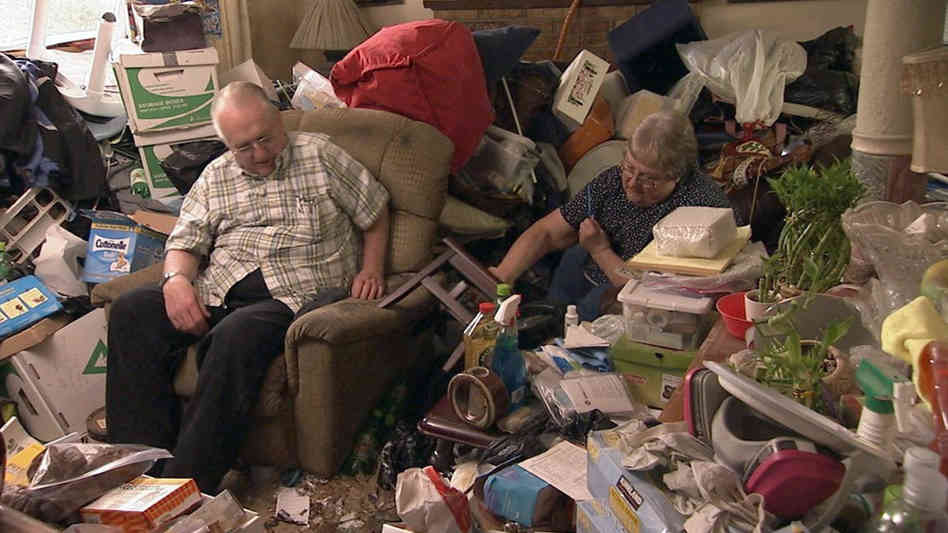Our overwhelming need for “stuff” is what has led to over-consumption and the exploitation of objects. The obsession many Americans have with acquiring things is what prompted the television show “Hoarders”—a show in which unnecessary items pile up and swallow their consumers; but the consumers are so attached to these objects or the purchasing and owning of these objects they just can’t seem to let them go.

- The Horrors of Hoarding (From “Hoarders)
However, we need things. We really do. Do I need my lace doilies or my rock collection? No, not in the sense that I couldn’t survive without them. But I need things for my own mental stability, personal well-being, and emotional growth. The things which we consume can end up consuming us if were not careful–the ultimate paradox. This overabundance of objects can smother our identities and lead us towards an existence which forces us to sleepwalk through our lives. On the contrary, things can be extremely helpful in our daily lives. Cars make it easier to travel long distances, phones make it easier to communicate over long distances, and clothes are just awesome to have sometimes. The act of consuming is definitely one that requires balancing. For instance, I try not to spend too much time on the computer and more time outside, with no electronic devices on me. That separation of self and object is good for me. I’d like to not rely on my things so much; if the apocalypse comes soon, I’ll need to know how to make a fire and survive off of plants without Google as my aid. A lot of my friends express this mindset that they don’t want anything and can live off the land. They have a profound desire to connect with nature and shun all things material. For example, my friend Alice*name has been changed* is in Costa Rica–I was recently told that there her cell phone and purse had been stolen; her response: “yeah, it’s okay, I guess it’s just a sign from the universe that I don’t need those things.”
However, my friend’s abhorrence with objects doesn’t take into account their cultural significance. For instance Lakeisha says
“Baby wearing wasn’t something special like it is in western cultures, woman worked hard and it was just what they did to cope. Mothers worked hard and didn’t have time to entertain babies. It was used to make life easier, each country in the world use a different type of baby carrier to fit their needs. For example, it depended on the climate, type of work they did. In addition, to the culture and traditional wearing position.”
Objects can benefit us socially and culturally–providing us with insight at foreign lifestyles and linking us to other beings as well as allowing us to become more in touch with who we are.

Your post definitely teases out the tension between excess and minimalism– some folks can’t see their own floor, and some folks don’t even want to have a floor at all.
This notion brings up the fact that we struggle to negotiate balance of possessing the right amount of things. Even the hardcore wilderness survivalist (probably) needs a knife, but does the older couple need 17 years of newspapers and empty Coke cans?
I think we generally have a rough go of it, trying to arrive at a sense of self that feels “right,” when it comes to our relationships with objects. Another issue with that could be in how we define a right relationship to objects. That is a subjective matter to be determined by the individual, but such extremes like hoarders and natural survivalists indicate some intrinsic criteria that make both polarized points of view seem wrong in some way.